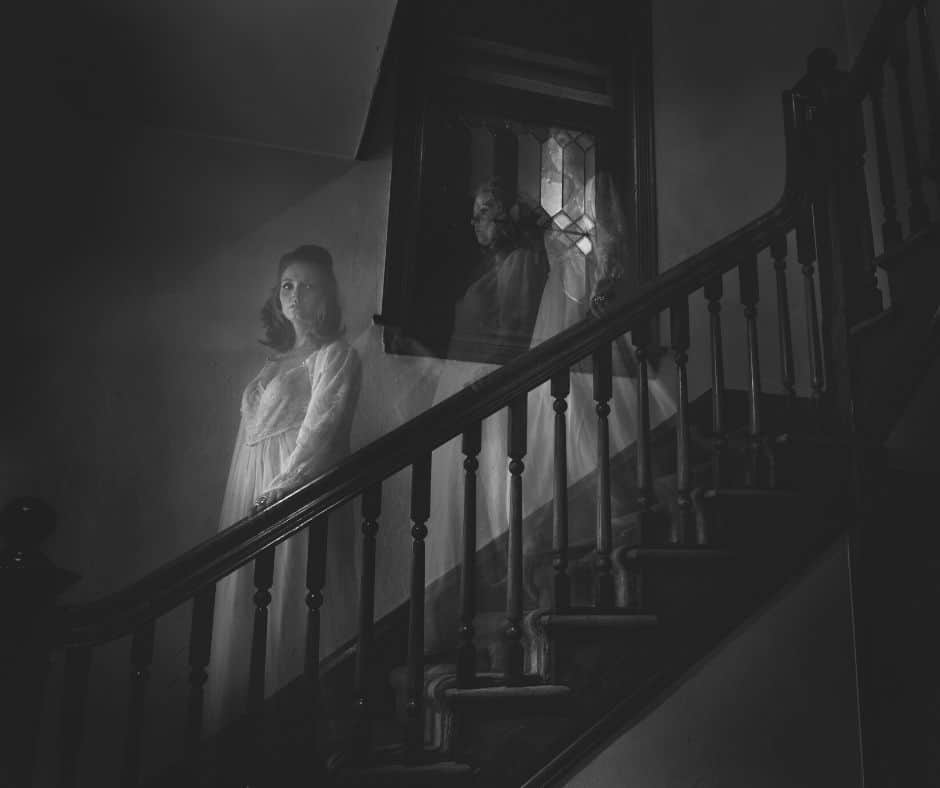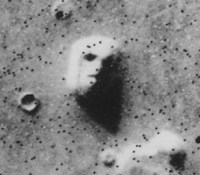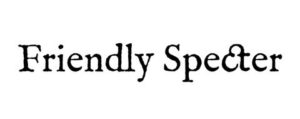Are ghosts real, or are they made-up stories to scare or entertain us? Ghosts have been featured in many novels, tales, and folklore throughout history. But is there any truth to the claims?
real, or are they made-up stories to scare or entertain us? Ghosts have been featured in many novels, tales, and folklore throughout history. But is there any truth to the claims?
There is no conclusive scientific evidence of the existence of ghosts. One of the explanations for this is that the supernatural can’t be measured by science. Others claim that psychological factors are causing the experiences.
There are three camps for the paranormal: the ones certain there is a world beyond ours, the ones who are not sure what to think, and those who resist the idea. Regardless of what you believe, there is always a tiny bit of uncertainty. The thing is, can ghosts even be proven by scientific methods even if they do exist?
Are ghosts real?
We all have our opinions when it comes to the paranormal. The thing is, all viewpoints can be challenged as the paranormal is, yes, supernatural. Logical and scientific reasoning can be challenged by psychic and spiritual “evidence.” And the psychic and spiritual lack measurable scientific evidence. No matter how you twist and turn, your butt is always in the back.

Ghosts are experienced with all the six senses (intuition, hearing, sight, smell, touch, and taste). Intuition can’t be measured with scientific tools or gadgets – even if this is one of the most sensitive senses we have when it comes to registering ghostly activity. Intuition mixes all senses with a grain of experience and knowledge.
Spiritual and religious beliefs are the same as the paranormal – you can’t prove there is a God, but you believe and seek evidence of its existence. This sets us humans apart from other species (at least what we know of). Since the beginning of days, we have felt the presence of gods, goddesses, spirits, or divine nature. Ghostly apparitions and experiences have been very similar through the ages – misty ghostly apparitions (The Everything Ghost Hunting Book).
and experiences have been very similar through the ages – misty ghostly apparitions (The Everything Ghost Hunting Book).
Science in itself can be seen as a kind of “religion”. Science is the belief that everything follows the laws of nature and logic.
Science vs. spirituality
The existence of ghosts has been debated since the beginning of time. The Chinese philosopher Mo Tzu (470-391 BCE) wrote, “Since we must understand wheater ghosts and spirits exist or not, how can we find out? The way to find out whether anything exists or not is to rely on the ears and eyes of the multitude. If some heard or some seen it, then we have to say it exists.” (Ghosts , Stuart Webb).
, Stuart Webb).
We are still battling the same issue 2500 years later – how to prove something intangible and not follow the rules of nature? How can we confirm or debunk the human experience of ghosts when we don’t have the “scientific” tools to do so? The paranormal combines spirituality with science – it is not one or the other. I think it is combined, which is why it is so hard to fetch scientific proof.
The paranormal combine spirituality with science – it is not one or the other. I think it is combined, and that is why it is so hard to fetch scientific proof.
Miss Claudette
How many believe in ghosts?
46% of Americans believe that ghosts are real, according to Ipsos.com. That is a number you can’t ignore. If 46% have experienced, or their gut feeling tells them there is something beyond – maybe there is some truth to it even if it isn’t measurable with scientific tools. There are recordings and pictures of ghostly apparitions, but as with all evidence of that sort, it is quickly challenged.
Another interesting find from the YouGov statistic is that 35% believe in life after death, and 27% are unsure. This means that about one in three believes in the Afterlife. This can, of course, be religious beliefs and supernatural transcendence.
Interestingly, women seem to believe in ghosts more than men. If you have a higher degree, you seem to challenge the idea of ghosts more actively (YouGov.com).
I have gathered statistics on how many believe in ghosts in the table below. There are new statistics every year, but the percentage is relatively high.
| Country | Believe in ghosts | Source | Year |
|---|---|---|---|
| USA | 41% (43% demons) | YouGov.com | 2021 |
| UK | 34% | YouGov.co.uk | 2014 |
Scientific evidence of ghosts
Even if many people believe in ghosts, there is no scientific evidence of their existence. People have tried to prove their existence with the help of psychic mediums, electronic devices, photographs, videos, and you name it. But still, it seems to be hard to catch them in action.
One thing that paranormal investigators battle with is that they are trying to capture evidence that is not of our world. Ghosts are supernatural, which means they do not follow the laws of nature. They don’t have mass (what we know of), and still, they can move objects, tap on walls, talk, and even scream. How do you scream without vocal cords? The sound is there, but where’s the ghost?
One interesting thing is that even if we capture a ghost on, say, video, how do we explain other phenomena as sound? It is a hard nut to crack.
Falsifiability
There are many recordings and photographs of ghosts, but they are hard to use as scientific evidence. The evidence should not be able to be challenged. It should retrieve the same result every single time. If a ghost is caught in a photo, all ghosts should be caught in the picture.
Photos and video recordings are also easily tampered with and are hard to use as conclusive evidence of ghostly activity.
Falsifiability is vital in scientific research and is often something paranormal researchers battle with.
Patternicity and agenticity
The clue to the existence of ghosts might be found inside ourselves. Some scientists have found that people are prone to believe in omniscient beings. That there is something greater than us. In his book “The Beliving Brain” Michael Shermer explains that patternicity and agenticity might be the answer to our paranormal experiences.
Patternicity means that we see patterns in things that, in reality, make no sense. We see things in patterns that are not there. Agenticity means that we give patterns meaning and agency. It is like saying that a comet is a sign from the gods that X or Y is about to happen. We fill in the gaps in our knowledge and need things to have a “reason.”
When we start to believe something, we try to see evidence in the world around us that support our ideas. This is something you see everywhere. Online forums, for example. People for their truths and find evidence to support it, how crazy it might seem.
Another cause for seeing ghosts is pareidolia. This means that we see objects, like human traits, that aren’t there. Like Jesus in a toast, for example. This is a form of anthropomorphization. We try hard to see things that, in reality, are not there. This is the case with EVPs, for example. We hear what we want to hear in the recording.

We are back to falsification of evidence – if it happens once, it must happen every time. We can’t make up truth to fit our story.
So back to ghosts, if we believe there are ghosts, we start to notice evidence to back up our claims. When something happens that fits into the storyline, we affirm it as evidence. It is not uncommon to look away from evidence pointing in the other direction. This is called reinforcement of beliefs.
People tend to listen to people they look up to with authority or trust. If they are told ghosts exist, they are prone to believe in them.
Another reason for us to believe in ghosts is pure survival. When we are in creepy places, or something strange happens, our brain tells us it might be a danger. We decode the happening as a treat, and the flight response takes over. This is why creepy places seem to get the best out of us.
In the table below, I summarized the causes for us to see and believe in ghosts found inside us.
| Cause | Symptoms that lead to ghostly experiences |
|---|---|
| Patternicity | Creating patterns of things that don’t make sense |
| Agenticity | Creating meaning to patterns |
| Survival instinct | Mild hallucinations make us run away from threats |
| Grief hallucinations | Hallucinations caused by grief |
| Antrohomorfization | Seeing or hearing things that we want to see or hear |
I think this video builds a strong case of why people who believe in ghosts see them the most. They see patterns that others might not.
Spiritual and psychic evidence of ghosts
Psychic evidence of ghosts can’t be used as scientific proof of the existence of the paranormal. We have no tools or gadgets to measure what psychic mediumship is (and what it is not). As we don’t know what psychic experiences are, they can’t be used as scientific proof.
The evidence caught with the help of psychic mediums can’t be falsifiable. The experience can differ from medium to medium. Some psychics see things; others hear or feel something. Some of them know. Even if the incidents are actual, they can’t be used in a scientific setting.
Note, though, that the paranormal might not follow the rules of nature. It’s esoteric, after all. In that sense, psychic mediums might be the best gadget, tool, or measurement to experience what ghosts are. It is a big difference between scientifically proving something and experiencing it. But this is just me and my two cents.
I rely more on my psychic abilities than science when understanding the paranormal. I believe that you can’t measure what a ghost is when tools are created to measure earthbound physics.
We have to accept that some things are not to be fully understood by science. The human experience is proof enough for me. When I hurt myself, it hurts. No one can tell me that it does not exist because you might miss the neurological impulse sent to your brain. The emotion, feelings, and experiences are my truth of what happened, and it is enough.
Summary
There is no conclusive evidence of the paranormal. Ghostly activity has been recorded on different devices and monitors, but what we have recorded is still unknown. Are they ghosts or something else? And if they are ghosts, what are they? There are more questions than answers regarding ghosts and their existence.
Some believe that ghosts are created within us and have a psychological origin. Different hallucinations, epileptic seizures, elementary functions, or psychological symptoms might make us experience ghostly activity when the reality is non.
Psychics have experienced and communicated with ghosts for ages. We have no scientific evidence of how this works or if it is true. Maybe psychological symptoms are playing in, maybe not.
As ghosts are paranormal, it can be hard to prove their existence scientifically. How can you measure something that doesn’t follow the laws of nature? It is a catch-22.
- Ghosts, Stuart Webb, Google Scholar
- The Everything Ghost Hunting Book
 , Melissa Martin Ellis
, Melissa Martin Ellis
Need to contact a psychic medium?
Visit Keen.com and get 3 minutes for free using this link!


